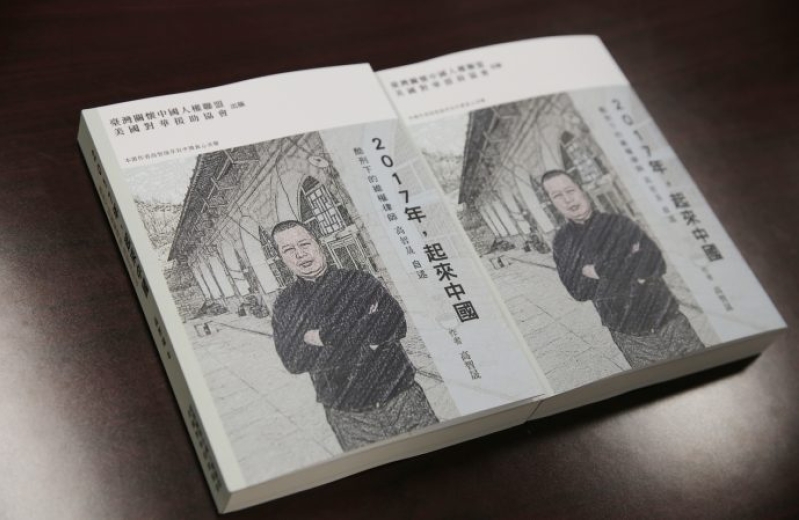
Chinese Christian dissident lawyer Gao Zhisheng has credited his faith in God for giving him strength while suffering imprisonment, torture and persecution at the hands of Chinese authorities.
In 2006, Gao, 52, was convicted of subversion and released several times only to be disappeared again by security agents. He was finally released in 2014, only to be placed under house arrest by Chinese police.
Despite living under almost constant surveillance, Gao was able to pen a chilling memoir of the persecution he endured during this time. The book, entitled Stand Up China 2017 - China's Hope: What I Learned During Five Years as a Political Prisoner, was published this week in Taiwan this week and smuggled out of the country.
Gao's book chronicles in detail the years of torture, abuse and imprisonment he suffered at the hands of police and secret agents between 2004 and 2014, and how his faith has sustained him.
"Every time I've been in trouble, my religion was always there as a source of strength," Gao told the Associated Press in an interview conducted over a messaging app to avoid surveillance. "All the difficulties I've experienced have drawn me closer to my faith and religion. I am a person of faith; a person of faith is never lonely, never weak. I think God gives me a lot of strength."
Gao, a former member of the People's Liberation Army, is recognized as one of China's most combative and fearless civil rights lawyers, defending Chinese minorities, including underground Christians and the victims of land grabs.
According to The Guardian, the first section of Gao's memoir focuses on a six-year time of abductions and torture sessions, while the second half recalls the "hellish" period he spent in prison in the remote western region of Xinjiang between 2011 and 2014.
The lawyer, who struggles from a number of health issues resulting from his time in prison, revealed that the book is his way of posing resistance: "I wrote it secretly because I had to hide from the minders who watch me around the clock," he said.
While he may suffer severe consequences for sharing his story, Gao said he is unafraid: "Once one has chosen to engage in combat, then there is no such thing as giving up," he said.
"The Communist party has done too many evil and cruel things. So I must fight them," he told the Guardian in 2006, adding: "I am a warrior who does not care whether I live or die."
China is officially atheist but constitutionally guarantees religious freedom. However, the country's government has exhibited a growing discomfort with Christianity, whose followers are said to rival in number the 86 million members of the Communist Party. Because of this, Open Doors USA has placed the country at 33rd on its World Watch List of countries where Christians face the most persecution.
Over the past year, the Chinese government has brought formal charges against nearly 20 human rights lawyers who, like Gao, defended Christians or spoke out against rampant cross demolitions in the province, and authorities have broadcast coerced "confessions" from several of them.
Gao told the AP he wishes to once again see his family, who fled China in 2009 and won political asylum in the United States, but acknowledged that such a reunion is currently unlikely.
"Of course I wish to reunite with my family; I also wish to be able to work again as a lawyer," he said. "But I know that as long as the Communist Party is in power, all these things will not be possible. My ultimate wish is that democracy and a constitutional political system will be established in China, so we can all live in a normal country."
He added, "I think change is about to happen here. I know this is not easy to understand, but staying here is the price we need to pay in order to be able to be part of the change."






